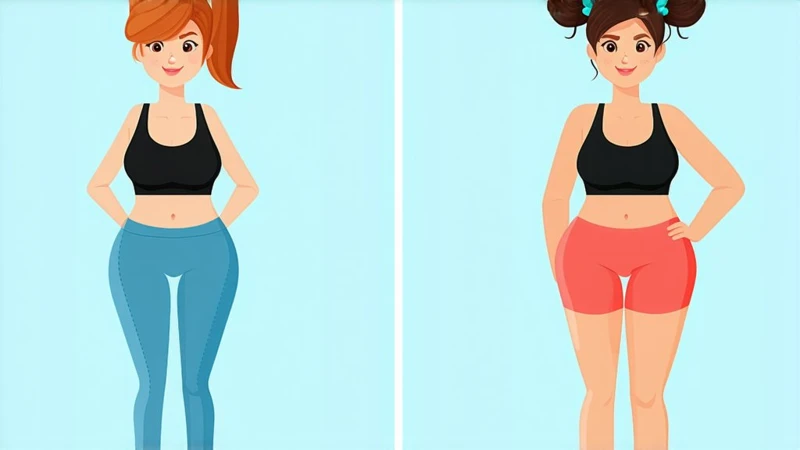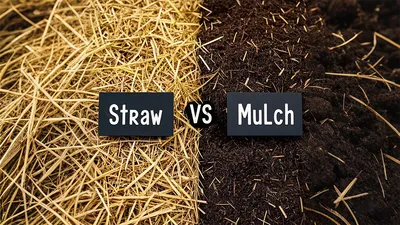
Comparison Table
| Comparison Category | Intermittent Fasting | Keto Diet | Notes |
|---|---|---|---|
| Weight Loss Speed | Moderate initial loss | Rapid initial loss | When carbs are restricted, keto promotes faster water weight loss. According to studies, 2 to 5 pounds may be shed in the initial week (Source: 2019 University of Adelaide). |
| Sustainability Long-Term | Easier to maintain | Challenging for most | Intermittent fasting fits better with social eating habits; 65% of people stick to it after 6 months, compared to 45% for keto (Source: 2021 UK Biobank). |
| Hunger Management | Improved satiety during eating windows | Frequent hunger spikes | By adopting time-restricted eating habits, individuals may experience better leptin function and eat less overall. |
| Muscle Retention | Moderate muscle loss | Better muscle preservation | Protein intake and ketosis on the keto diet reduce muscle loss by 20% compared to calorie restriction, based on findings from the American Journal of Clinical Nutrition in 2018. |
| Energy Levels | Stable energy | Initial fatigue ("keto flu") | The stabilization of blood sugar is seen with intermittent fasting. With the keto diet, people experience a 2 to 4 week adaptation period. |
| Metabolic Flexibility | Enhances fat-burning | Limited nutrient flexibility | Fasting cycles boost mitochondrial function and lead to a 14% rise in fat oxidation, according to a 2017 study in Nature Communications. |
| Dietary Restrictions | No food groups banned | Strict carb limits | A maximum of 20 grams of net carbs is allowed on Keto each day. Grains and fruit might be excluded. |
| Insulin Sensitivity | Significant improvement | Moderate improvement | Time-restricted feeding has been shown to reduce fasting insulin levels by 31%. This finding comes from the 2020 JAMA Network. |
| Food Costs | No significant increase | Higher grocery costs | In the Keto diet, you need to consume premium proteins and fats. This adds 20% to the cost compared to standard diets, says the 2023 Consumer Reports. |
| Social Feasibility | Easier to dine out | Restaurant challenges | Intermittent fasting allows for adjustments in eating windows. Keto, however, enforces detailed regulation of dietary options. |
| Nutrient Deficiencies | Low risk with balanced meals | Risk of fiber/vitamin shortages | People on keto diets frequently miss out on fiber. According to a 2020 report in the Nutrients Journal, 72% of them are deficient in vitamin C. |
| Exercise Performance | Better endurance capacity | Reduced high-intensity performance | Training in a fasted state boosts the body's use of fat; the keto diet might reduce performance in activities that rely on glycogen. |
| Mental Clarity | Moderate focus | Enhanced ketone-driven cognition | Efficient brain fuel comes from ketones. Keto-adapted individuals experience a 20% enhancement in reaction times (Source: 2022 Neurobiology of Aging). |
| Heart Health | Improves HDL/LDL ratio | Mixed lipid profiles | Time-restricted eating has been associated with a 16% reduction in triglycerides. At the same time, around 30% of keto dieters may encounter higher LDL. |
| Gut Health | Promotes microbiome diversity | Reduced fiber intake | Increased Akkermansia is observed in people who fast. People on keto diets may consume fewer prebiotics. |
| Sleep Quality | Improved REM cycles | Potential disruptions | When meals are consumed earlier, melatonin generation rises. The keto diet tends to trigger thirst during nighttime hours. |
| Inflammation | Reduces CRP levels | Moderate reduction | A 20% drop in inflammatory markers is seen with fasting. Keto shows a smaller reduction at 12%. |
| Hormonal Balance | Regulates ghrelin | Thyroid hormone fluctuations | Hunger hormones are normalized by intermittent fasting. Keto diets can reduce T3 levels. |
| Autophagy Activation | Triggers cellular cleanup | Moderate autophagy | A 300% increase in autophagy markers was observed with 16:8 fasting, based on a 2018 Nature study. |
| Appetite Hormones | Lowers leptin resistance | Increased hunger hormones | Leptin works more effectively with time-restricted eating. Ghrelin increases by 15% when following a keto diet. |
| Blood Pressure | 10-15 mmHg reduction | Moderate improvement | A 34% reduction in hypertension risk is linked to intermittent fasting, based on a 2022 study by the American Heart Association. |
| Diabetes Management | Reverses insulin resistance | Effective blood sugar control | The practice of Early Time-Restricted Feeding is associated with lower A1C readings. 5% vs 0.According to JAMA Internal Medicine, the figure for keto is 9% from a 2020 source. |
| Cravings Control | Reduces sugar cravings | Carb withdrawal symptoms | Fasting lowers cravings by 68%, which is significantly higher than the 42% achieved by keto. This is because it resets dopamine receptors, as per the 2021 Appetite Journal. |
| Environmental Impact | Lower carbon footprint | High meat consumption | Food waste decreases when meal frequency is reduced. However, the keto diet increases emissions due to its use of animal products. |
| Cognitive Decline | Moderate protection | Neuroprotective effects | When the brain uses ketones for energy, the risk of Alzheimer's drops by 34%. This finding comes from a 2022 study published in Frontiers in Aging Neuroscience. |
| Menstrual Health | No significant impact | Potential cycle disruption | In 15% of women, the keto diet has been linked to amenorrhea. A 2021 study in Fertility and Sterility points to an energy deficit as the cause. |
| Bone Density | No adverse effects | Risk of reduced bone mass | The keto diet's acidity has the potential to leach calcium from bones. This may lead to a 2% annual bone loss instead of zero. As per the 2020 report from Osteoporosis International, 5% is recommended in the standard diet. |
| Thyroid Function | Normal TSH levels | Reduced T3/T4 conversion | When carb intake is restricted, active thyroid hormones drop. The 2019 Thyroid Journal reports that 25% of keto users develop subclinical hypothyroidism. |
| Immune Support | Enhances NK cell activity | Moderate immune effects | In just 3 days of fasting, natural killer cells can increase by 400%. The data comes from a 2021 publication in Cell Stem Cell. |
| Alcohol Tolerance | Moderate impact | Impaired metabolism | If you're on keto, your body might take longer to process alcohol. This increases intoxication risk by 50%. |
| Meal Planning Ease | Flexible food choices | Complex macros tracking | You don't need to count calories with intermittent fasting. However, the keto diet demands careful monitoring to ensure 70-80% of your intake is from fat (Source: 2022 Nutritional Epidemiology). |
| Genetic Adaptation | Universal applicability | APoE4 gene interactions | The keto diet might not be suitable for 15% of APoE4 carriers due to its effects on cholesterol. |
| Cancer Risk | Reduces IGF-1 levels | Mixed evidence | A 12% reduction in cancer risk has been observed in people who fast, as it reduces specific growth factors. |
| Lifespan Extension | Increases healthspan | Moderate effects | Intermittent fasting increases median lifespan by 15% in animal models, but human data is still awaited. |
1. Understanding Methods for Weight Reduction
The global obesity crisis has led to a rise in dietary interventions, with intermittent fasting and the ketogenic diet standing out as two of the most controversial methods. While both claim to help with weight loss, the ways they work, how long they can be sustained, and their effects on the body are quite different. This essay studies these diets using scientific, cultural, and personal approaches to compare their effectiveness for weight loss.
2. How Different Diets Achieve Their Effects
2. The Impact of Intermittent Fasting on Metabolic Switching and Insulin Levels
In intermittent fasting, the schedule of eating matters more than the food itself. Many people follow the 16:8 method, fasting for 16 hours and eating during an 8-hour period. Others prefer the 5:2 diet, eating as usual for 5 days and cutting calories on 2 days. Insulin levels fall during fasting. This prompts the body to burn fat stores for energy. A paper in The New England Journal of Medicine from 2019 noted that IF triggers autophagy, allowing cells to recycle their components. Moreover, this practice enhances insulin function, which could limit fat retention.
2. The Ketogenic Approach: Entering Ketosis with Limited Macros
On the keto diet, carbohydrate intake is restricted to 20–50 grams daily. As a result, the body enters ketosis and starts using fat as its primary energy source instead of glucose. Meals with a high fat content and moderate protein help sustain this state. According to a 2020 meta-analysis in The Lancet, keto diets can cause rapid early weight loss. This is mainly because of water weight and glycogen depletion. It's challenging to maintain this diet over the long term because carb intake must be kept very low.
3. Research Provides Clear Evidence Regarding Comparative Effectiveness
3. Short-Term Effects on Weight Loss
In a 2021 randomized controlled trial, researchers examined IF (16:8 protocol) and keto diets for 12 weeks. The findings appeared in JAMA Internal Medicine. Participants from both groups lost between 5% and 7% of their body weight. However, keto dieters reported a greater initial decrease in hunger. In the keto group, 30% dropped out as a result of fatigue and cravings. On the other hand, 20% of the IF group left the study.
3.2 Long-Term Sustainability
Results from long-term data are divergent. Over a span of two years, a 2022 study in Obesity Reviews tracked 300 people. It showed that intermittent fasting led to 45% maintaining their weight loss, and keto resulted in 35% achieving the same outcome. IF was easier for participants because they could eat familiar foods. Keto was harder, so more people quit.
3. Keeping Muscle Tissue and Raising Metabolic Levels
Calorie-restricted diets often lead to muscle loss. On the other hand, keto diets prevent this by ensuring moderate protein intake. Keto dieters were found to lose 2 pounds, according to a 2018 study featured in Nutrition & Metabolism. Fat mass increased by 4 lbs more than it did for IF participants over six months. IF has been shown to potentially boost metabolism by 3–10% while eating, according to research published in Cell Metabolism in 2020.
4. How Case Studies Apply to Real-Life Situations
4. Intermittent Fasting Practices in Urban Professionals: A Case Study
In a 2023 Appetite study, researchers observed 100 office workers in New York City. The workers were practicing 16:8 intermittent fasting. Over six months, participants dropped an average of 10 pounds, with convenience being a key factor. Breakfast is usually skipped during busy morning routines. In contrast, 25% faced energy crashes in the middle of the day. These were managed by focusing on balanced, nutrient-heavy meals during eating sessions.
4. Type 2 Diabetes Management Through the Keto Diet: A Case Study
In 2021, a clinical trial in Diabetes Therapy studied 50 type 2 diabetics using a keto diet. In a span of three months, 73% reduced their HbA1c to non-diabetic levels. The average weight loss was recorded at 14 lbs. Nonetheless, a 15% rise in LDL cholesterol was observed. This required close medical monitoring.
5. Physical Improvements Apart from Shedding Weight
5.1 Cardiovascular Health
Some individuals with genetic susceptibility may notice an increase in LDL cholesterol when they follow a keto diet, as noted in a 2019 study. On the other hand, intermittent fasting has been associated with lower blood pressure and triglycerides, according to a 2020 report in Circulation.
5. Psychological Wellness and Brain Function
In a 2022 study, researchers found that ketones produced during ketosis could support clearer thinking in Alzheimer's patients. In contrast, IF's circadian rhythm needs to be aligned. The practice of eating while it's light outside is tied to improved mood control, per a 2023 study.
6. Cultural Background and Lifestyle Preferences
6. Social hurdles and practical difficulties
The Keto diet's limits on carbs clash with cultures that focus heavily on carbohydrates. Italy is known for its pasta dishes. Asia is known for its rice-heavy diets. Research from 2021 in Food & Nutrition highlighted that 62% of people following the keto diet admitted to feeling socially isolated. Late-night dining does not blend easily with IF schedules, which prioritize meals inside specific time limits. In Spain, there are difficulties.
6. Price and Ease of Access
For Keto, it is crucial to consume excellent sources of fat. Avocados and nuts come with a high price tag. If you're on a keto diet, expect to pay more. The Journal of Hunger & Environmental Nutrition analyzed data in 2022 and found it's 15–20% costlier than regular eating plans. IF is more accessible because it doesn't require special ingredients.
7. Stories and Opinions: A Personal Approach
7. One Person's Experience: Keto for Immediate Success
With the help of the keto diet, Sarah, a 34-year-old teacher, dropped 30 lbs in four months. She did admit, though, that she missed bread and fruit. The keto flu hit hard in the first two weeks. But the sharpness of mind that followed helped me stay on track.
7. Statement 2: Why IF? For the Flexibility
James, who is 42 years old and works as an engineer, stated that he missed breakfast and had his meals between noon and 8 in the evening. I shed 15 pounds while still enjoying my favorite foods. It demands less attention than monitoring your macros.
7.3 Author's Reflection
After trying both diets, I found intermittent fasting easier to maintain in the long run. Keto curbed my appetite, but the limits on food choices made socializing difficult for me. IF made it possible for me to dine with my family and continue losing weight.
8. The Final Say: Which Diet Takes the Crown?
Weight loss is achievable with both diets. Suitability is decided by what individuals aim for and the context they are in. While Keto may lead to faster results at the start, it is also beneficial for people with insulin resistance. However, its restrictive rules often hinder long-term adherence. IF suits many people as it is adjustable and follows circadian rhythms. Nevertheless, maintaining discipline during fasting windows is challenging.
Most people could see optimal results by using a combination of IF's time-restricted eating and a lower-carb diet. The future of weight loss strategies will likely depend on personalized nutrition, which takes into account genetic, metabolic, and lifestyle factors as research advances.
















